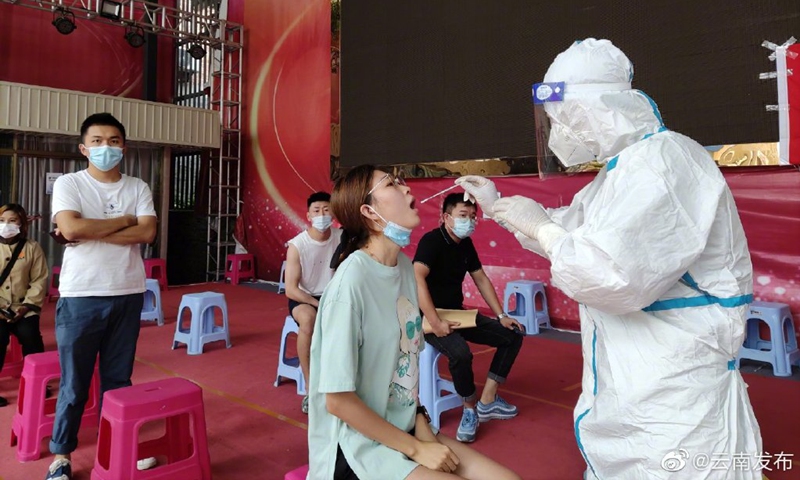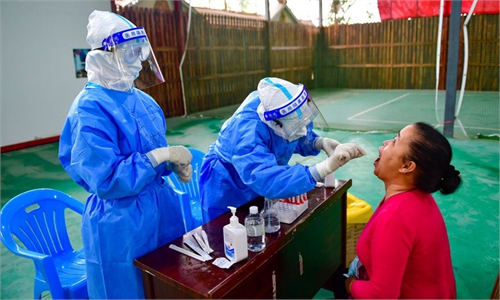Sporadic cases in SW China Ruili highlight blind spots and complexity of border epidemic control: experts

Photo:Sina Weibo
Ruili, the border city between China and Myanmar, reported another three domestic confirmed COVID-19 cases on Thursday, the only three that the mainland reported on the day. Public health experts said their confirmation doesn't represent new epidemic resurgence in Ruili but these sporadic cases highlight the blind spots and complexity of border epidemic control.
Two cases are Myanmar nationals and one is a two-year-old Chinese child. They were close contacts of a previous confirmed case on August 11. The three tested positive for COVID-19 when they were in a designated quarantine place for medical observation, according to Yunnan Provincial Health Commission on Thursday.
Wang Peiyu, a deputy head of Peking University's School of Public Health, told the Global Times on Thursday that these new cases are sporadic cases, following cluster outbreak that started from July 4. As new cases are within the closed-loop management, their confirmation doesn't represent new epidemic resurgence in Ruili. However, it does show the existing loopholes and complexity of border epidemic prevention and control.
Continuous sporadic cases that arise after rounds of tests, combined with strict epidemic prevention and control measures, suggest that there are still blind spots in the city's interior epidemic control measures. This could involve contaminated trash, or feces not being properly dealt with, or mass nucleic acid tests that don't cover all residents, Wang said.
Since July 4, Ruili has used quasi-lockdown measures, which played essential functions in curbing the virus from leaving its region. However, these measures may fail to cut virus transmission routes within the city, the expert explained.
China's epidemic coping model stresses "Four-Early" measures - early detection, early reporting, early quarantine and early treatment of COVID-19 cases. If there's a failure to control the infection source and cut off the infection channel then fresh flare-ups could be ignited anytime, experts had said..
The Global Times learnt that some local residents were previously found to have escaped mass nucleic acid tests when they should have received them, many of whom were Myanmar nationals, and there are also some border stowaways sneaked in the city to avoid legal punishment.
A government source said that the situation has largely improved recently after the Ruili government dispatched forces to pay door-to-door visits and register the information of nucleic acid test takers. Myanmar nationals who previously had avoided tests were better informed as the government gave them bilingual leaflets about epidemic prevention and control.
In addition, Ruili also reported seven confirmed imported cases on Thursday, six of whom returned to China from Myanmar and one from Laos. Previously, a local source said many people who had engaged in cross-border telecommunication and internet fraud cases returned from neighboring countries as they decided to confess their crimes. After they reached the Chinese border, they underwent closed-loop management.



